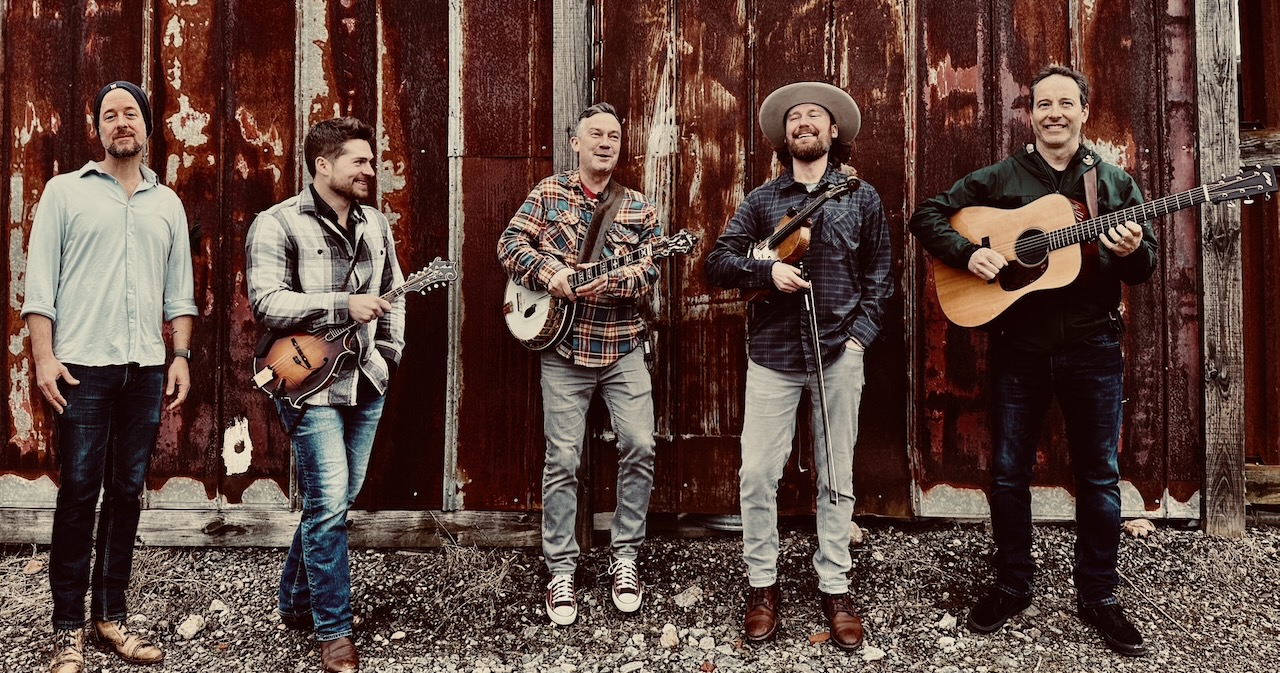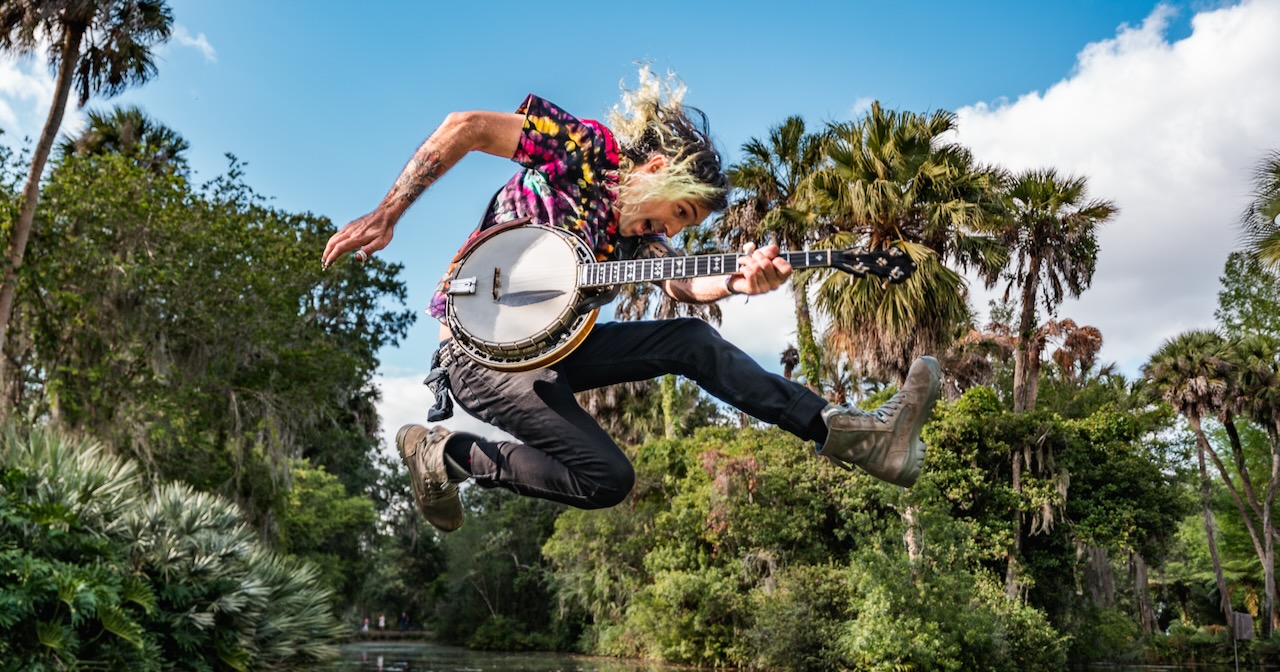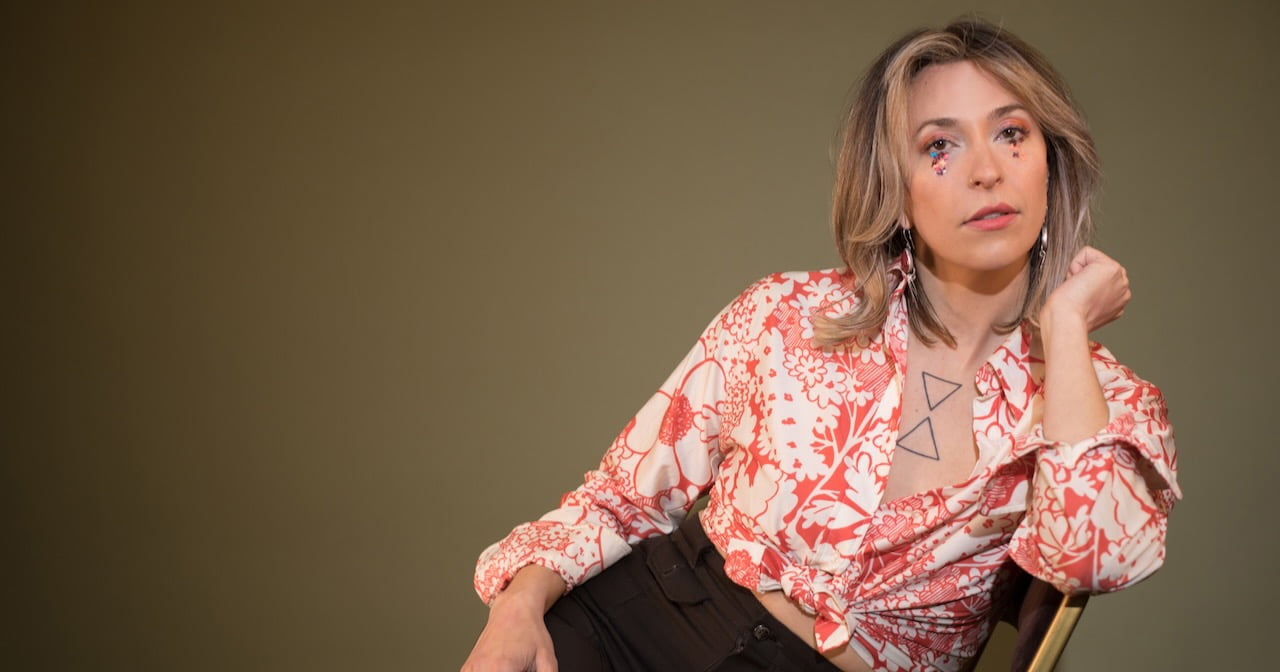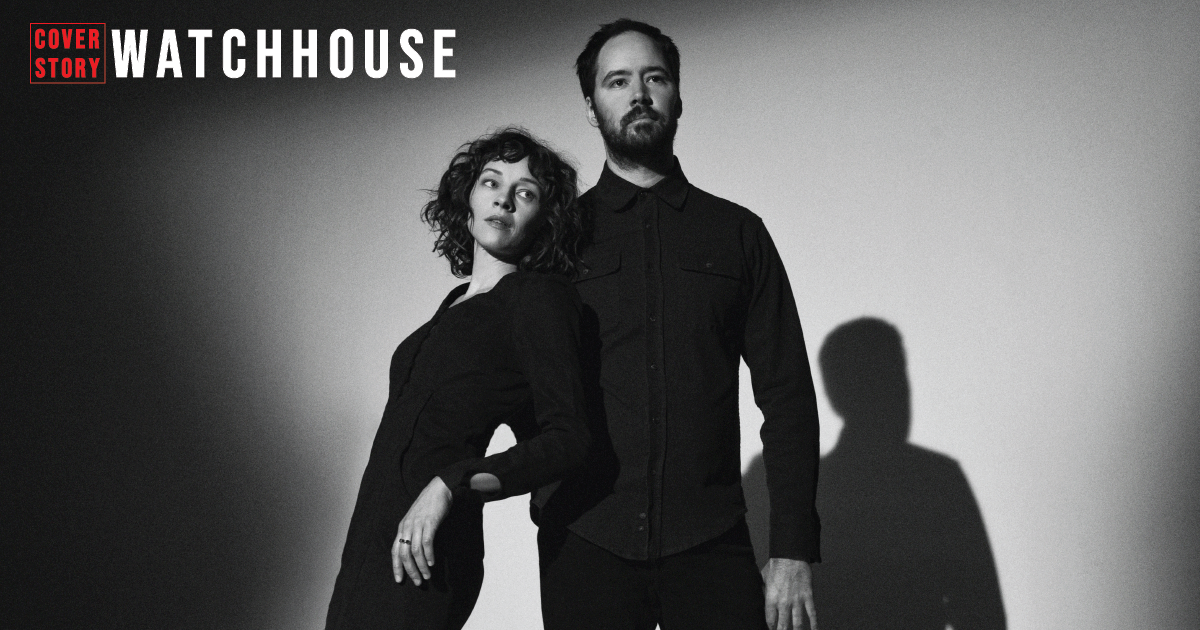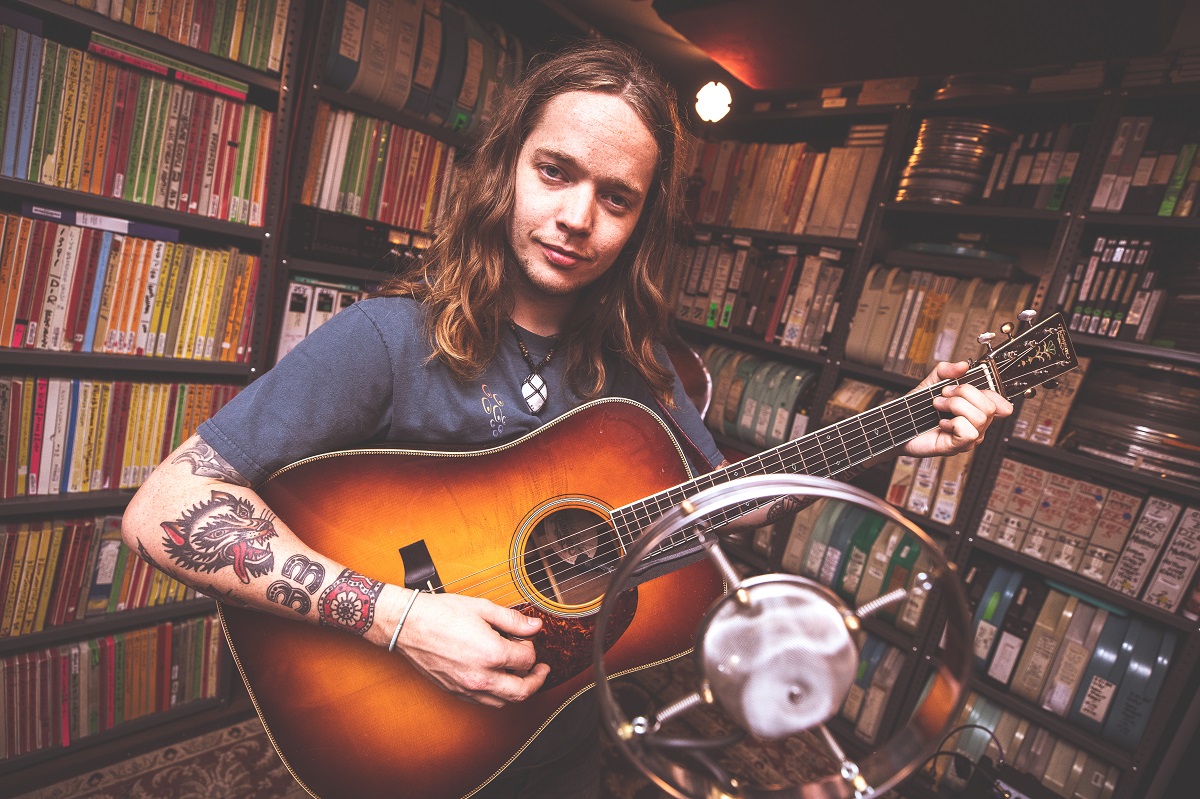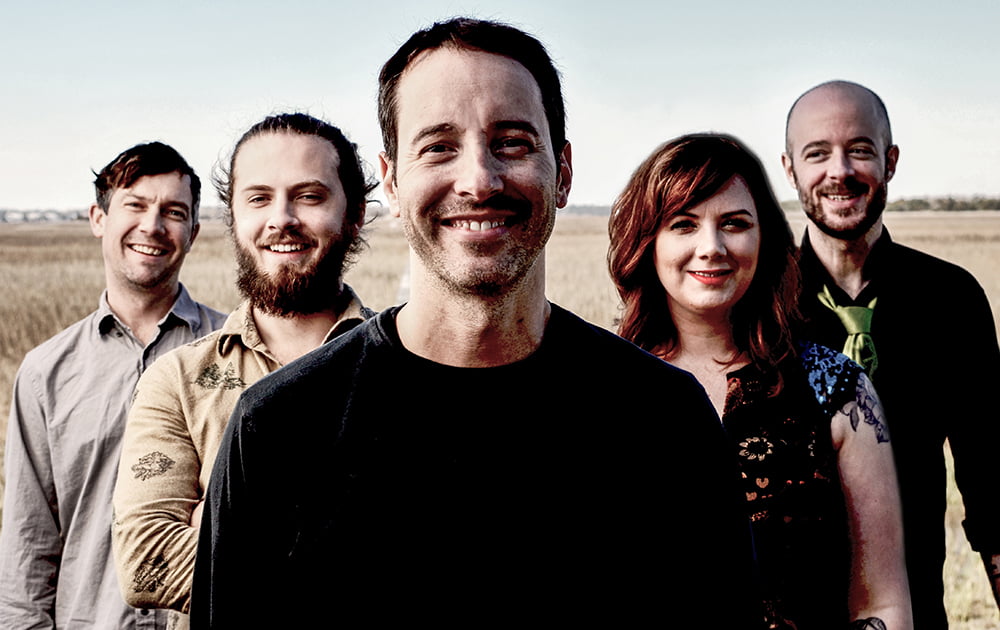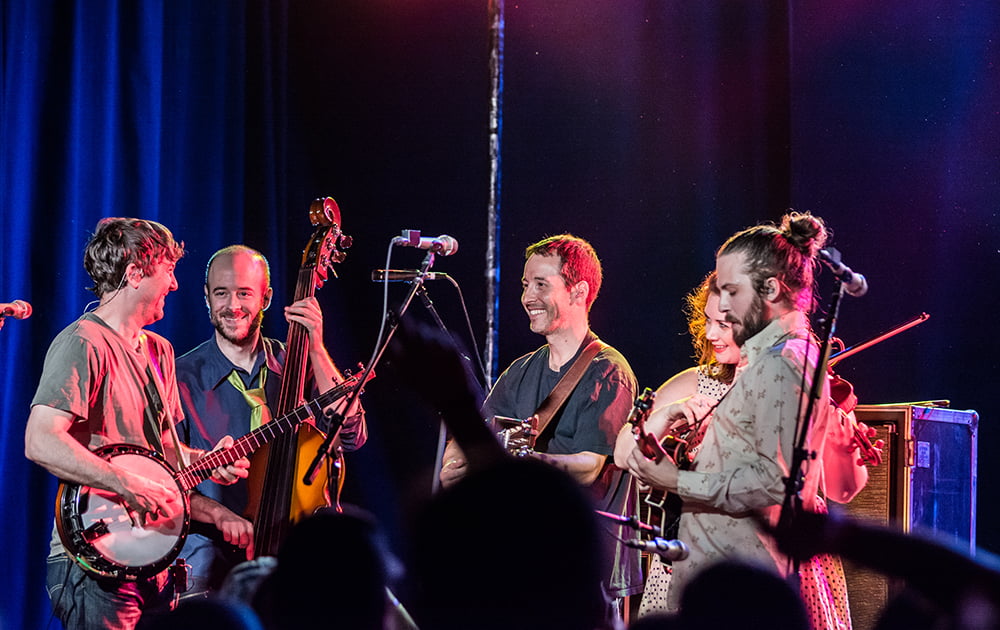For a quarter century Yonder Mountain String Band has inspired a generation of bluegrass fans with its fusion of traditional sounds and intricate jams. That trend continues on Nowhere Next. The band’s first full-length album since 2022, it showcases the abilities of its two newest members – mandolinist and vocalist Nick Piccininni and fiddler Coleman Smith – front and center.
Piccininni connected with the group in January 2020 and Smith was added earlier this year, joining the band’s longtime core of bassist Ben Kaufmann, guitarist Adam Aijala, and banjo player Dave Johnston, collectively bringing a new energy to the band that harkens back to its early days – when they also consisted of the frenetic and oftentimes unpredictable Jeff Austin. Despite being in the band for nearly five years now and co-writing nine of the album’s 11 songs, Piccininni says that joining up with such an established collective was intimidating at first.
“It’s definitely daunting when you come into something that’s been around as long as these guys have,” Piccininni admits to BGS. “But working with Adam, Ben, and Dave has actually come very naturally. They’ve made me comfortable in expressing opinions about the music and giving my two cents. They’ve not once made me feel like I was an outsider.”
In our latest installment of First & Latest, we chart the band’s evolution and trailblazing nature from their 1999 debut, Elevation, all the way to their brand new album, Nowhere Next, a collection that features old favorites familiar to longtime fans alongside new songs sure to make you fall in love with them all over again.
Two songs on this record – “Didn’t Go Wrong” and “River” – have been a part of your live show for years, even making it on to different iterations of your Mountain Tracks compilations. What made y’all want to finally give them a proper studio treatment?
Adam Aijala: Ben sings on and had been pushing both of those. We have about 30 songs we’ve written over the years that aren’t on a formal record yet. Even before Nick joined the band, we’d been thinking about getting into the studio and recording some of them. That being said, I still prefer to write new stuff. When people ask me how you keep going after a quarter century, I always say that if we weren’t writing new material I don’t know that we would still be around. You’ve got to keep things fresh, whether that’s learning new covers or having your own new stuff to perform.
Given the mix of new and old on this record, both in terms of the song selection and rotation of band members, what are your thoughts on where Nowhere Next stacks up with the rest of the Yonder catalog?
AA: When Get Yourself Outside came out, I thought that was our best record, but now I think this one is. I still hold an affinity for albums like Elevation and Town by Town, but I’m really happy with Nowhere Next and what we were able to do on it. It’s still bluegrass, maybe not the traditional kind, but Yonder Mountain’s bluegrass with varied rhythms, tempos, and styles.
One of our biggest influences is The Grateful Dead, and they’re the same way. In the years between their albums – from their self-titled first album to their Skulls & Roses live album, Wake of the Flood, Terrapin Station, and Workingman’s Dead – they evolved in different ways, but always stuck to a similar blueprint no matter what musicians happened to be around them. Similarly, you can still hear elements of what we did on our first few albums today, which songs like “Didn’t Go Wrong” and “River” further help bridge the gap to.
One song that I feel ties together all of the elements that make up “Yonder Mountain’s bluegrass,” that you just spoke of really well, is Nick’s song, “Secondhand Smoke.” Mind sharing a bit about how that one came to be?
Nick Piccininni: The basis of that is that I went through a divorce and when I separated from my wife the first apartment I got had my landlord living downstairs. He was unfortunately confined to a wheelchair and just sat there chain-smoking cigarettes one after the other. I only lasted a month there before I went out and found a new place. In that sense the song was very literal, but there was also the aspect of going through a big change in your life while living in a small town and feeling like everyone is watching you and talking behind your back.
Interesting. I picked up on the themes of deceit, but the literal reference to secondhand smoke is a nice touch. What does the band’s songwriting process look like as a whole, especially with Nick and Coleman now part of the band?
AA: Everybody in this band has written songs that I really like. With that in mind, I don’t think it’s a “too many cooks in the kitchen” kind of situation. It’s more like, I trust that we’re going to get the best song by letting everyone have a listen, peek at it, and hear what they have to say, whether it’s with one of my songs or someone else’s. I’m not someone to hold my ideas close. It’s better not to be married to them, for me at least. For instance, when Dave tells me he doesn’t like something of mine, it doesn’t bother me because he’s not saying it to be hurtful, he’s just giving his opinion and I trust him when it comes to that.
For me most of my songwriting ideas start with music first. I don’t have a great writing regimen or practice, I just wait for something to spark interest and roll with it. But if it’s music first and I don’t really have an idea on what it would be about, I think on the mood of the music and what those chords and potential melody makes me feel and go from there.
What about you, Nick? And has your process changed at all since joining Yonder?
NP: Historically, for me, I’ve been a music-driven ideas guy too. On most days I’ll sit down at home, pick up my guitar and record or work on a few voice memos. Lately I’ve also gotten into a better habit of working on a lyric while on an airplane or sitting at a hotel because we have so much downtime with all of our travel. At the same time, things have changed a lot in the last four and a half years of being with Yonder though. Prior to joining them I’d never co-written. Getting that outside perspective on my songwriting is something I’d not experienced before and has been incredibly beneficial to me.
Although it’s not Nowhere Next or new songs, I wanted to briefly discuss your I’d Like Off EP, a previously unreleased project from 2010 featuring former member, Jeff Austin, that dropped earlier this year. What was the motivation behind finally sharing those recordings?
AA: When we recorded it our intent was to do a full album. We recorded about 13 tracks for it in pre-production at my house, some of which ended up on the EP and others that were never recorded. We’ve had a couple projects like this that we’ve sat on so long that we didn’t see much of a point in releasing so far down the road, but with this one we decided to move forward since everything was done aside from it being mixed and mastered. We’ve been playing “What the Night Brings” and other songs from it live regularly, as well. It helps to keep us interested, which in turn keeps the crowd interested and connected to what we’re doing as well.
What has your time with Yonder Mountain String Band taught you about yourself?
AA: It’s helped to hone my social interactions. If there’s one thing in life I’ve learned it’s that the world doesn’t revolve around you, especially when you’re a traveling outfit with multiple people. You’ve got to learn to roll with things and when we first started the band I wasn’t like that. Before I joined the band, I traveled all over the country in my own vehicle by myself. I got so used to going where I wanted when I wanted, but in a band it’s the exact opposite.
NP: It’s taught me how impatient I can be. Musically, it’s been cool because I’ve usually played banjo, fiddle, and more melodic instruments, but stepping into a mandolin role has taught me just how much of the snare drum of bluegrass it really is and learning to just do one very simple thing repeatedly and lock in on it. It’s been one of the most challenging things I’ve had to take on and pushing myself to do it to the best of my ability has been neat.
Photo Credit: Robin Vega
